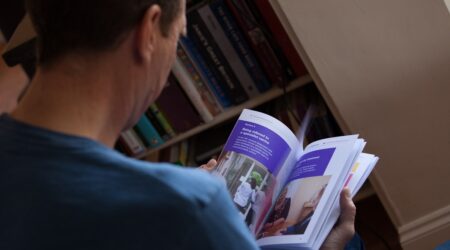Researcher: Dr Lucy Oldfield
Location: University of Liverpool
Date: January 2025
Project status: Ongoing
Improving early detection of pancreatic cancer in people with new onset diabetes
The challenge
Earlier detection of pancreatic cancer is essential in order to diagnose more people at a stage where they are able to have potentially life-saving treatment. One of the areas where there is great potential to detect pancreatic cancer earlier is through surveillance of people who are known to be at higher risk of developing the disease, including people with a recent diagnosis of diabetes.
Approximately a third of patients who are diagnosed with pancreatic cancer will have recently developed a specific type of diabetes, known as type 3c diabetes, which can be an early warning sign of the disease. Type 3c diabetes is different to other types of diabetes in that it can occur due to damage or inflammation in the pancreas, and can be thought of as a warning sign that something is wrong. However, diabetes is very common and most people with diabetes will not develop pancreatic cancer.
At present, there is no specific test to distinguish type 3c diabetes from the more common type 2 diabetes, missing an opportunity to improve the early detection of pancreatic cancer within this group.
The project
In this project, Dr Oldfield aims to develop a blood test to identify people with a new diagnosis of diabetes who have type 3c diabetes, so that they can be quickly referred for testing to see if they also have pancreatic cancer.
This project builds on previous research funded by Pancreatic Cancer UK and led by Professor Eithne Costello, which identified markers in the blood that could be used to distinguish Type 3c diabetes from Type 2 diabetes. So far, these markers have been used to develop a test which has been shown to work in type 3c patients at a stage when they have also been diagnosed with pancreatic cancer. However, in this project Dr Oldfield aims to refine the test so that it is also able to detect Type 3c diabetes in patients before they are diagnosed with pancreatic cancer.
Dr Oldfield also plans to investigate whether the test could be carried out using blood from a finger prick test which may be more acceptable to patients and may be able to be carried out at home.
The hope
Dr Oldfield hopes that by the end of this project, the blood test will be ready to be tested in patients. This blood test could be critical in helping to advance the earlier detection of pancreatic cancer in patients with new-onset diabetes, allowing more people to receive potentially life saving treatment.
"New onset of diabetes is considered to be the largest high-risk category for pancreatic cancer. My project will develop tools to find people who have new onset diabetes who are most likely to have pancreatic cancer, so that we can detect and diagnose the disease earlier and get them to treatment as soon as possible."



